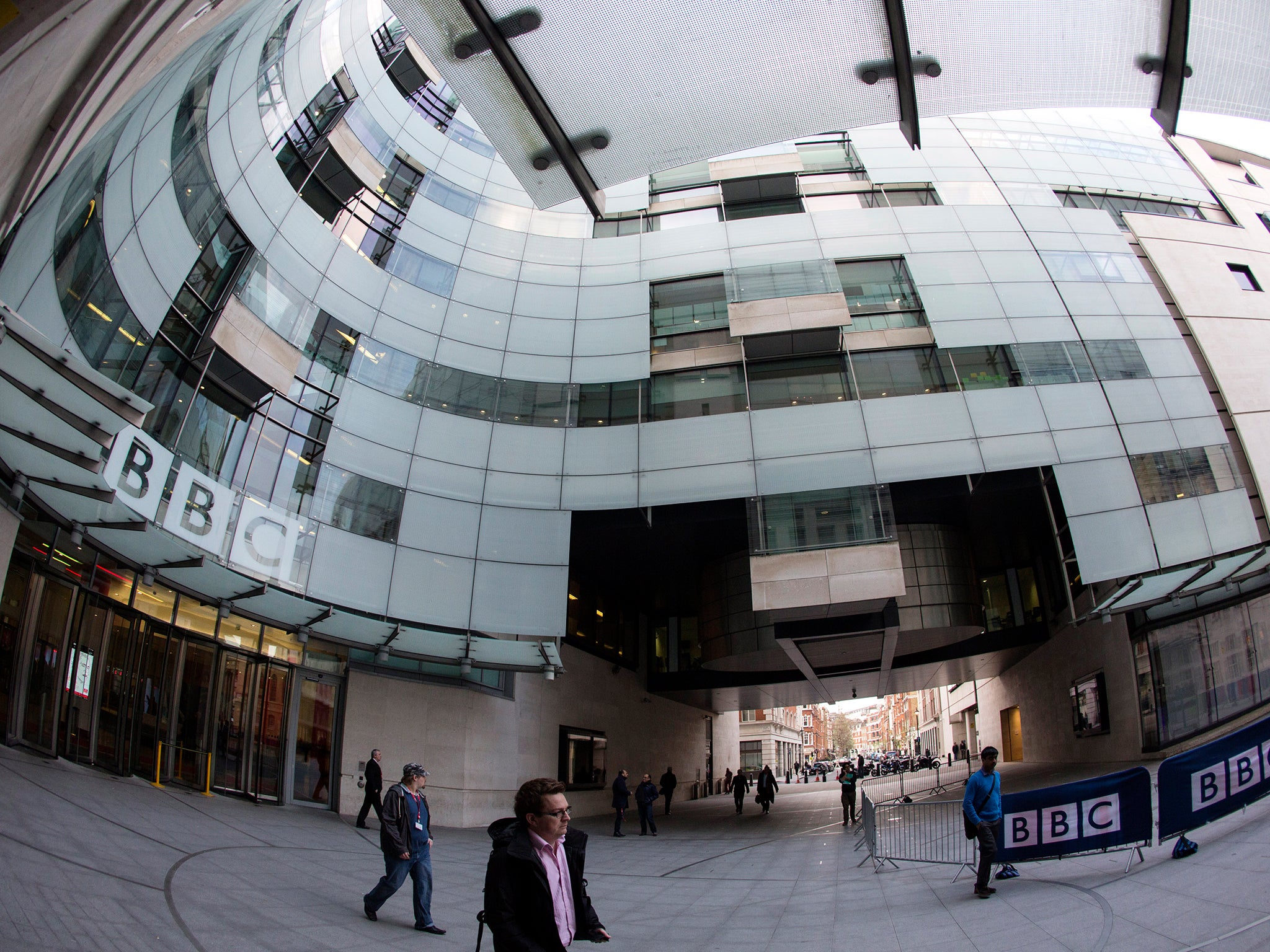Liberal bias at the BBC? It’s all hot air by the Tories
I fail to see the problem of excising racist views from a news report


Your support helps us to tell the story
From reproductive rights to climate change to Big Tech, The Independent is on the ground when the story is developing. Whether it's investigating the financials of Elon Musk's pro-Trump PAC or producing our latest documentary, 'The A Word', which shines a light on the American women fighting for reproductive rights, we know how important it is to parse out the facts from the messaging.
At such a critical moment in US history, we need reporters on the ground. Your donation allows us to keep sending journalists to speak to both sides of the story.
The Independent is trusted by Americans across the entire political spectrum. And unlike many other quality news outlets, we choose not to lock Americans out of our reporting and analysis with paywalls. We believe quality journalism should be available to everyone, paid for by those who can afford it.
Your support makes all the difference.Sometimes, life just throws up incredible surprises. A newspaper owned by Rupert Murdoch is carrying extracts from a book that criticises the BBC for its liberal bias. Well, who’d have thought it? We are only a few weeks into a new government, and already the forces of Conservatism (with a capital “C”) are ranged against the corporation, cheered on by media organisations who have a commercial interest in the Beeb getting a bloody nose.
Roger Mosey has held a number of senior posts at the BBC and is a highly experienced and well-respected journalist. His book, Getting Out Alive (no, it’s not about a tour of duty in Kandahar, but chronicles a career largely behind a desk in White City) is being serialised by The Times, and their headline yesterday – “BBC dogged by liberal bias, former chief admits” – tells you why the newspaper was interested in running Mosey’s book.
But here’s what Mosey actually says: “I believe most people in the BBC are fair-minded, and journalists have a professionalism that means they steer well clear of party political bias. I have never had the problem of an editor who skewed an agenda in favour of the Conservatives, Labour or any other party.”
That seems clear and unequivocal to me, although he suggested that there was a tendency among senior editorial figures towards “groupthink”, a de facto corporate view in which, it seems to me, values such as decency, fairness and tolerance were predominant. I know one man’s tolerance is another man’s pinko bias, but I fail to see the problem, for instance, of excising from a news report an interviewee’s racist views, even if they were representative of a wider body of people.
The corporation retains its reputation for unbiased reporting among the general public. BBC journalists are vastly more trusted than, say, politicians. In any case, the problem of BBC bias is inflated by the Westminster classes.
A criticism often levelled at the BBC is its inherent elitism. Mosey recounts a letter he received from Jeff Randall, then business editor, who wondered how many senior editors read Richard Littlejohn. “He reflects popular opinion far more accurately than the views of those whose idea of a good night out is reading the Indy over a vegetarian meal in a Somali restaurant.” It’s hard to work out what he feels most contemptuous about – readers of The Independent, vegetarianism, or Somali cuisine – yet the point will resonate.
We are led to believe the BBC doesn’t pay heed to the concerns – particularly when it comes to immigration – of a largely white, working class section of the population. I may not be the best person to rebut this – I’ve been known to flirt with vegetarianism myself – but I’m pretty sure that this group of people would be more exercised about the number of repeats on BBC1, or the loss of Jeremy Clarkson, or the Jimmy Savile scandal, than about the perceived liberal bias of the organisation’s news coverage.
In Mosey’s book, he says BBC local radio identified their target listeners as a middle-aged couple called Dave and Sue. Already, it is clear that, as we head towards Charter renewal next year, it would be better if this focus were quickly changed to a couple called Dave and Sam.
Join our commenting forum
Join thought-provoking conversations, follow other Independent readers and see their replies
Comments